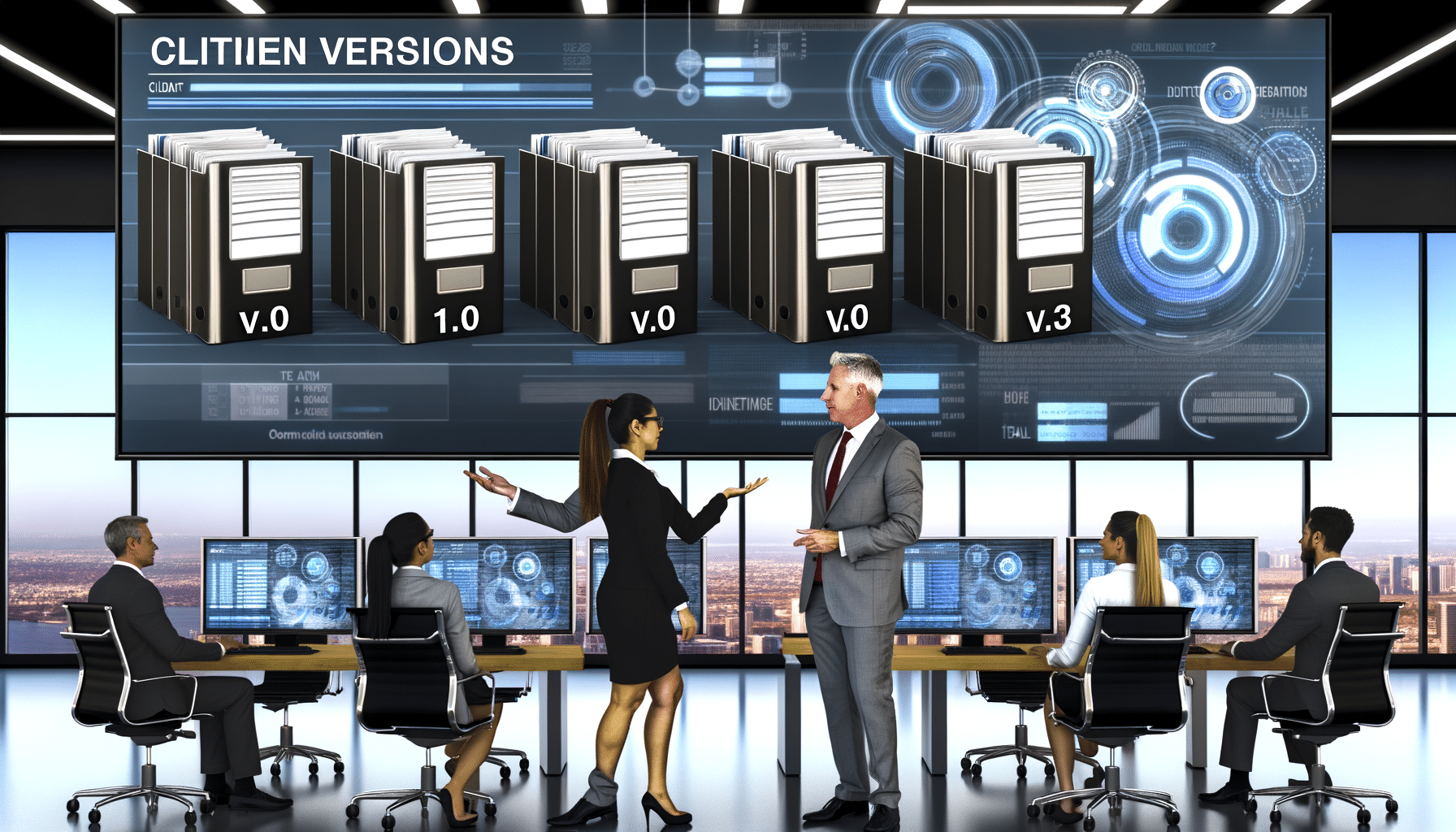- Physical Records Management
- November 16, 2024
Overcoming Record Archival Authentication

One of the persistent challenges I’ve encountered in the world of record management is the delicate issue of archival authentication. Many businesses and government sectors grapple with ensuring that their records are not only stored safely but remain unaltered and verifiable over time. In my years at RecordsKeeper.AI, I’ve come to realize that traditional record-keeping solutions leave much to be desired when it comes to security and authenticity. Here, I’ll delve into how technology, especially blockchain, is steering us towards a much-needed revolution in this space.
The Challenge of Archival Authentication
Records management is a cornerstone function in ensuring operational efficiency and regulatory compliance. Yet, ensuring these records are authentic — having remained unchanged since they were archived — is a significant hurdle. Conventional systems rely heavily on physical barriers or centralized databases, which are vulnerable to tampering and unauthorized access.
This vulnerability poses risks that extend beyond corporate governance into legal and compliance domains, threatening to upend organizations that prove incapable of verifying record authenticity when challenged. Clearly, the stakes are staggeringly high.
Blockchain: Revolutionizing Authentication
Now, let’s introduce blockchain into the mix. At its core, blockchain offers an immutable ledger — a perfect solution to counteract the forgery and alteration of archived records. This technology introduces an unassailable method for ensuring archival authentication.
Each record stored on a blockchain platform is cryptographically linked. When new records are added, they form blocks that are consecutively connected to previous ones, creating a chain. The genius here is that altering any single record would require the hefty task of reconfiguring an entire subsequent blockchain — an endeavor not practically feasible.
How RecordsKeeper.AI Elevates Archival Authentication
Over at RecordsKeeper.AI, we embrace blockchain technology’s innovative spirit to redefine record management. Our platform integrates blockchain at its core, allowing users to enjoy a seamless, efficient way to authenticate their archived records.
Advantages of Our Blockchain-Integrated System:
- Immutable Records: Once recorded, files are secured against any alterations, safeguarding the sanctity of every record.
- Decentralized Access: A decentralized network ensures there’s no single point of failure, minimizing risks of downtime or unauthorized access.
- Traceability: Each record alteration, if any, is traced with timestamped documentation, enhancing audit trails and accountability.
The Wider Implications on Compliance and Security
Regulatory frameworks like GDPR and HIPAA prioritize data integrity and transparency, aspects that blockchain inherently complements. As organizations continue to strive for compliance, blockchain stands as a robust ally, ensuring that records remain authentic and accessible during audits.
Imagine having peace of mind that every archived document in your organization is validated and secured. That’s not just a technological advancement; it’s a strategic advantage that modernizes your entire information handling.
Implementing Blockchain in Your Organization
Embracing this tech leap might seem daunting, yet the transformation it heralds is unparalleled. Here’s how to initiate blockchain-powered record management within your institution:
- Evaluate Current Systems: Assess the strengths and gaps of your current records management setup.
- Start Small: Begin implementing blockchain on a pilot subset of records to establish understanding and comfort with the technology.
- Integrate with RecordsKeeper.AI: Leverage platforms like ours to smoothly navigate the transition, ensuring you maintain standard procedures whilst benefiting from enhanced security.
Conclusion: The Path Forward
It’s critical for us as organizations to continuously evolve in how we manage records, not just in storage but in verifiable authenticity. Blockchain offers a monumental opportunity to shift away from outdated practices to a more secure, compliant, and efficient structure of record-keeping.
As you move forward, consider engaging with RecordsKeeper.AI to augment your record management strategy. In doing so, you fortify your data’s integrity while propelling your organization into the future of adequate and reliable record-keeping. Follow me for more insights on transforming how records are managed and authenticated.
Toshendra Sharma is the visionary founder and CEO of RecordsKeeper.AI, spearheading the fusion of AI and blockchain to redefine enterprise record management. With a groundbreaking approach to solving complex business challenges, Toshendra combines deep expertise in blockchain and artificial intelligence with an acute understanding of enterprise compliance and security needs.
Related Posts

Managing Paper Records in a Digital Office
Handling remaining paper records in digital environments.
- November 28, 2024

Organizing Records for Multiple Client Versions
Tracking different versions of client documentation effectively.
- November 27, 2024
Archives
- December 2024
- November 2024
- October 2024
- September 2024
- August 2024
- July 2024
- June 2024
- May 2024
- April 2024
- March 2024
- February 2024
- January 2024
- December 2023
- November 2023
- October 2023
- September 2023
- August 2023
- July 2023
- June 2023
- May 2023
- April 2023
- March 2023
- February 2023
- January 2023
- December 2022
- November 2022
- October 2022
- September 2022
- March 2019
Want to get more content like this?
Signup to directly get this type of content to your inbox!!
Latest Post
Organizing External Auditor Access
- December 22, 2024
Document Control in Manufacturing Plants
- December 21, 2024
Handling Rush Financial Report Requests
- December 20, 2024
Managing Record Access After Staff Changes
- December 19, 2024





